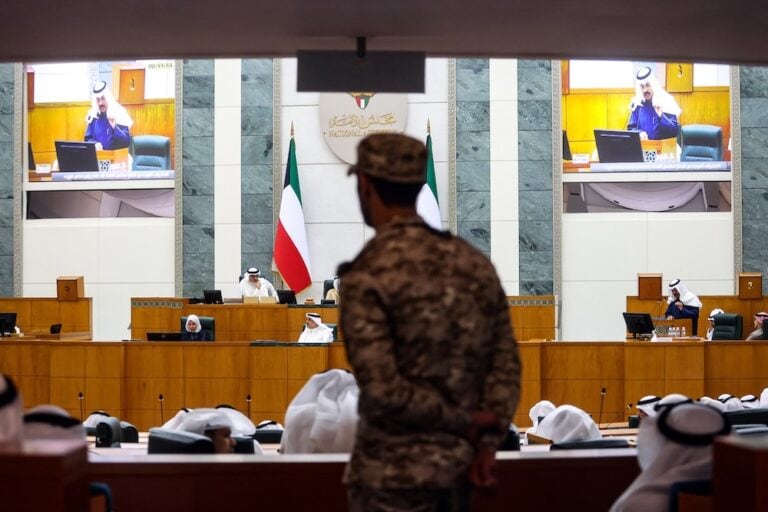Hamad al-Naqi was sentenced for insulting the Prophet Mohammed and the kings of Saudi Arabia and Bahrain, among other charges.
The Kuwaiti Court of Appeals on October 28, 2013, upheld a 10-year prison sentence for a local blogger’s comments on Twitter, Human Rights Watch said today.
Hamad al-Naqi was sentenced for insulting the Prophet Mohammed and the kings of Saudi Arabia and Bahrain, among other charges.
The ruling is another example of a violation of the right to free speech in Kuwait, Human Rights Watch said. Any attempt to criminalize peaceful criticism, or even “insults” to public officials and institutions, violates international standards on freedom of expression.
“Ten years in prison for peaceful criticism shows just how little Kuwait respects freedom of expression,” said Joe Stork, deputy Middle East director at Human Rights Watch. “Locking up critics isn’t going to make Kuwait’s political crisis go away.”
Authorities should quash the verdict and release al-Naqi immediately, Human Rights Watch said. Since a political crisis in June 2012, Kuwaiti authorities have attempted to limit freedom of expression, charging dozens of politicians, online activists, and journalists with “offending” the emir, Kuwait’s head of state, among other charges. The authorities should drop charges against those accused or convicted of crimes solely for exercising their right to freedom of expression, and it should amend Kuwait’s article 15 of the National Security Law and article 111 of the Penal code, Human Rights Watch said.
In June, the Kuwaiti Court of First Instance found al-Naqi guilty of insulting the rulers of Saudi Arabia and Bahrain, of provoking sectarian tensions, of insulting the Prophet Mohammed and the prophet’s wife and companions, mocking Islam, and misusing his mobile phone to disseminate the objectionable comments.
Al-Naqi’s lawyer, Khaled al-Shatti, told Human Rights Watch that the lower court convicted al-Naqi for tweets criticizing the neighboring rulers on the basis of article 15 of the National Security Law, which sets a minimum three-year sentence for “intentionally broadcasting news, statements, or false or malicious rumors…that harm the national interests of the state.” The court also convicted al-Naqi for a tweet allegedly insulting the Prophet Mohammed and his wife Aisha under article 111 of the Penal Code, which prohibits mocking religion and carries a maximum one-year sentence.
Al-Naqi pleaded not guilty to all the charges, contending that someone had hacked his Twitter account and impersonated him.
As a state party to the International Covenant on Civil and Political Rights and the Arab Charter on Human Rights, Kuwait is required to protect the rights to freedom of opinion and expression. The United Nations Human Rights Committee, which provides the definitive interpretation of the covenant, has stated that “all public figures, including those exercising the highest political authority such as heads of state and government, are legitimately subject to criticism and political opposition,” and there is a need for “uninhibited expression” in public debate concerning public figures. It also says that “prohibitions of displays of lack of respect for a religion or other belief system, including blasphemy laws, are incompatible with the Covenant,” except in very limited circumstances.
“Punishing Hamad al-Naqi for criticizing neighboring monarchs clearly violates international rights standards,” Stork said. “It’s disappointing that on appeal the authorities didn’t try to remedy this violation.”


